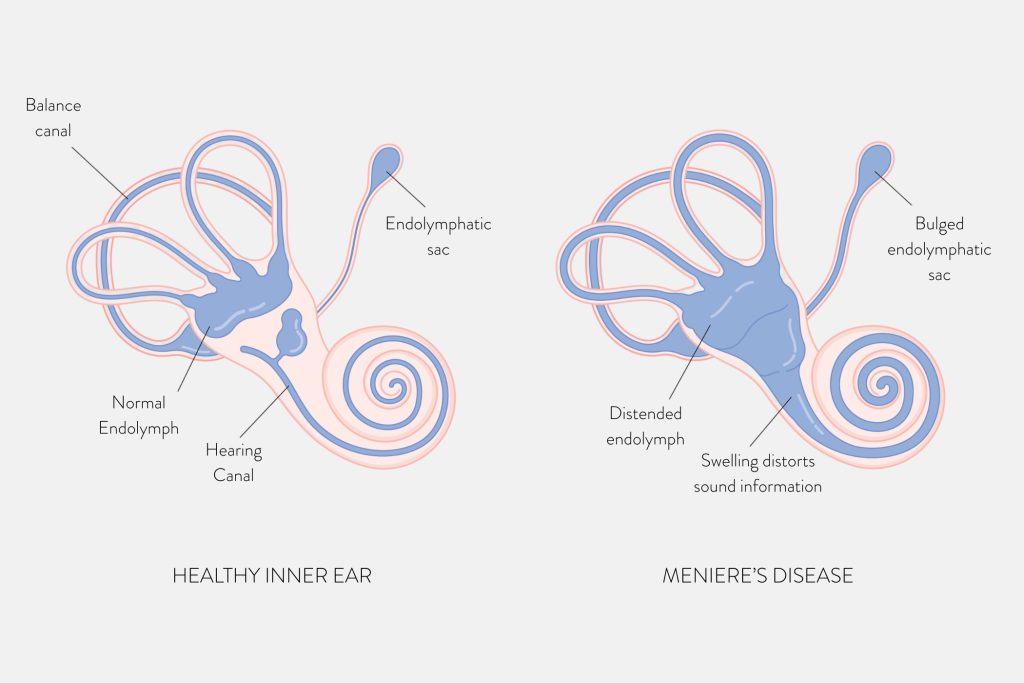How is Meniere’s disease diagnosed?
Several tests can be carried out by healthcare providers to diagnose Meniere’s disease. Your GP will ask about your health history, check inside your ears, and look at your head and neck. They may also ask you to perform some exercises to check your balance. Once other conditions have been ruled out, they will refer you to an ENT or an Audiologist.
A hearing assessment provided by an audiologist will look at how you can hear sounds at different pitches and volumes. Since people with the condition often have trouble hearing lower frequencies or combined high and low frequencies, this can be used as an indicator of the disease.
An audiologist may also perform a series of tests to check the reflex of your inner ear for balance. While your balance may be back to normal after a vertigo episode, there may be some lingering effects that tests can pick up.



